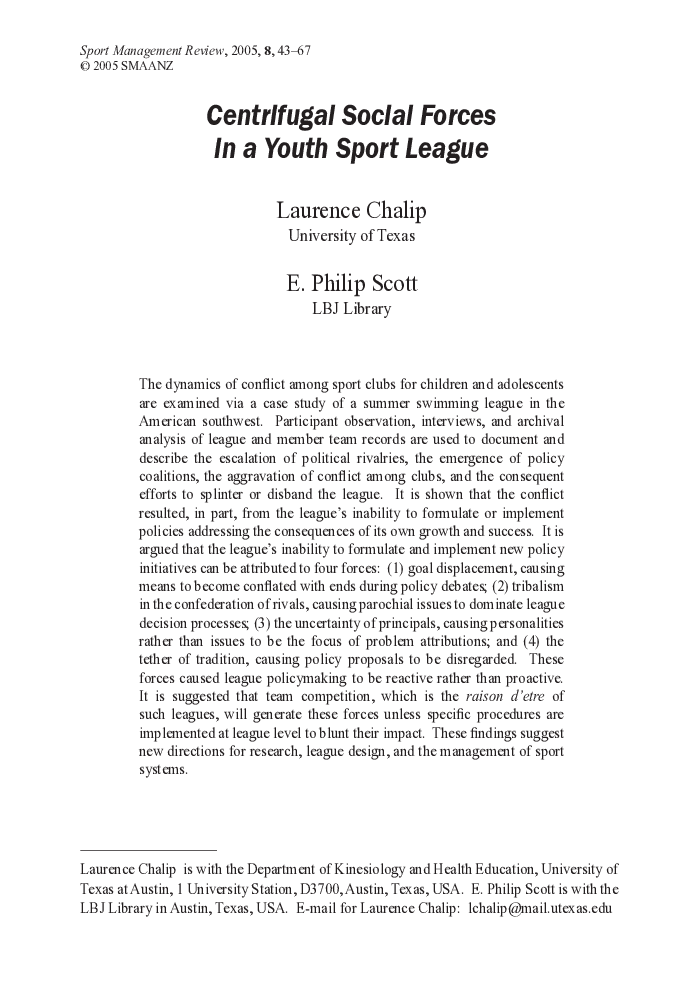| Article ID | Journal | Published Year | Pages | File Type |
|---|---|---|---|---|
| 10256674 | Sport Management Review | 2005 | 25 Pages |
Abstract
The dynamics of conflict among sport clubs for children and adolescents are examined via a case study of a summer swimming league in the American southwest. Participant observation, interviews, and archival analysis of league and member team records are used to document and describe the escalation of political rivalries, the emergence of policy coalitions, the aggravation of conflict among clubs, and the consequent efforts to splinter or disband the league. It is shown that the conflict resulted, in part, from the league's inability to formulate or implement policies addressing the consequences of its own growth and success. It is argued that the league's inability to formulate and implement new policy initiatives can be attributed to four forces: (1) goal displacement, causing means to become conflated with ends during policy debates; (2) tribalism in the confederation of rivals, causing parochial issues to dominate league decision processes; (3) the uncertainty of principals, causing personalities rather than issues to be the focus of problem attributions; and (4) the tether of tradition, causing policy proposals to be disregarded. These forces caused league policymaking to be reactive rather than proactive. It is suggested that team competition, which is the raison d'etre of such leagues, will generate these forces unless specific procedures are implemented at league level to blunt their impact. These findings suggest new directions for research, league design, and the management of sport systems.
Related Topics
Social Sciences and Humanities
Business, Management and Accounting
Business, Management and Accounting (General)
Authors
Laurence Chalip, E. Philip Scott,
